Safety Steps You Must Take When Getting Home from the Grocery Store
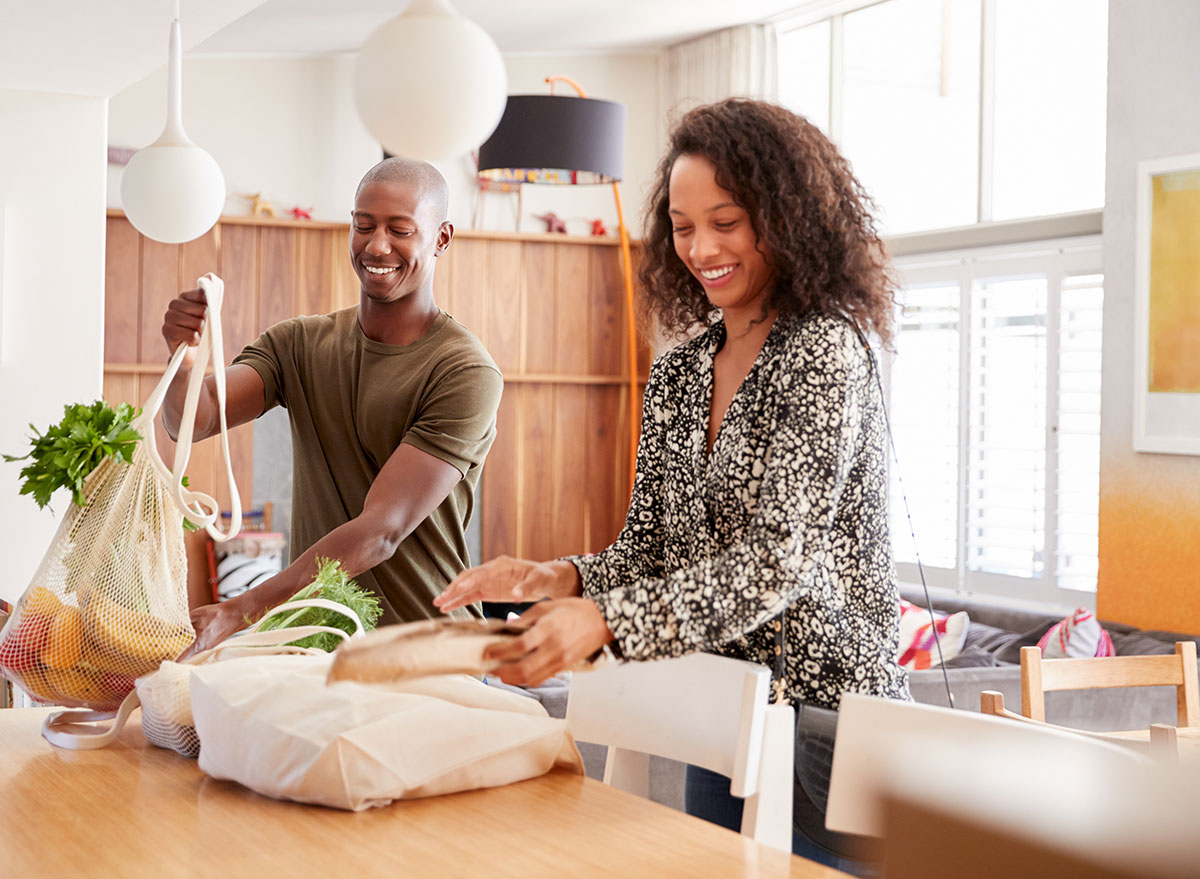
During the pandemic, it’s essential that you take extra precautions when grocery shopping to lessen your chances of exposure to the coronavirus. However, the safety measures you take while in the store are just as important as the ones you take once you get home.
The likelihood of contracting COVID-19 from a surface or an object is low, however, that doesn’t mean you shouldn’t be cautious when handling things that could potentially be contaminated. Here are five safety steps you can take after returning home from the grocery store that may help minimize your chances of becoming ill. And, to keep yourself informed, sign up for our newsletter to get the latest coronavirus food news in your inbox.
Wash your hands immediately after coming home.
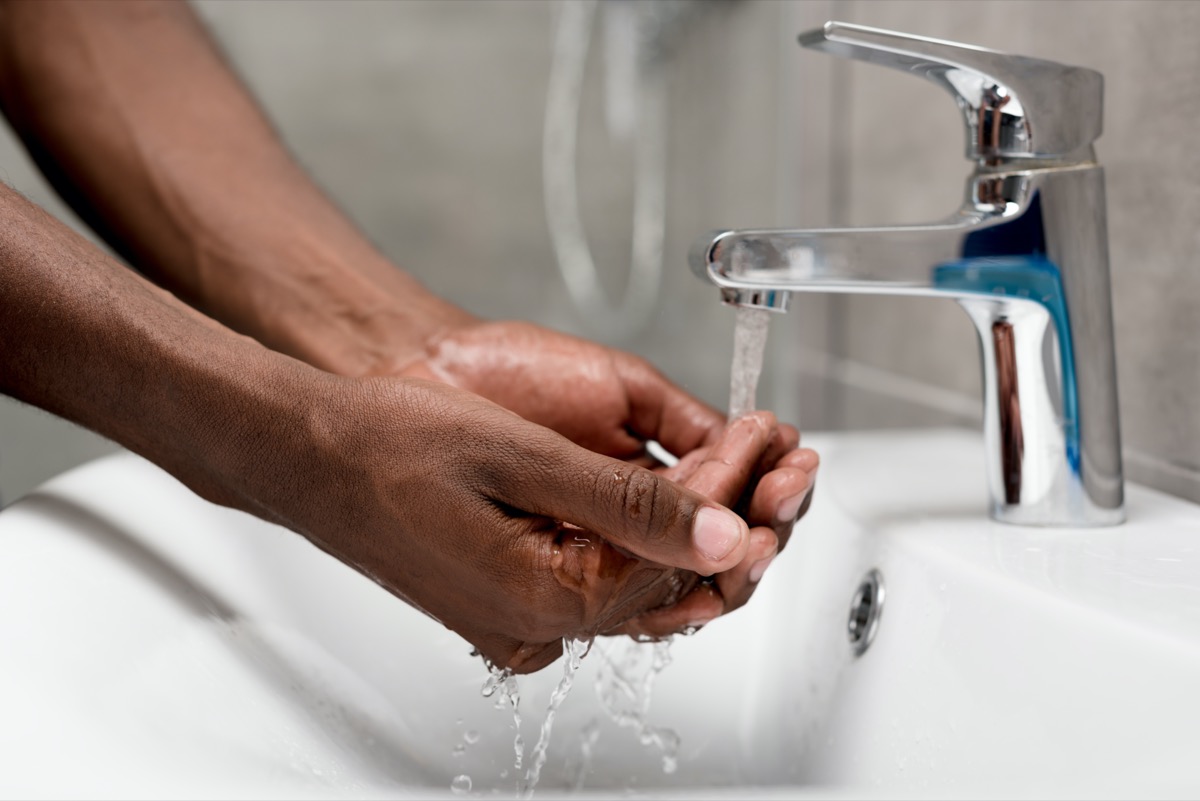
The first thing you should do after coming home from the grocery store is to wash your hands for at least 20 seconds. Not only did you touch things at the grocery store, but you also touched the steering wheel of your car, the car door, and the doorknob that you slipped your keys into. Scrub your hands thoroughly and then get to unloading your groceries. You’ll want to wash your hands again after you’ve finished unloading, and by all means, avoid touching your face as you’re putting your groceries away.
Get rid of disposable grocery bags immediately.

According to the Journal of the American Medical Association (JAMA), “If using a disposable grocery bag, discard it once you are home. Reusable bags can be stored for later use.”
The article also says that “Time is on your side,” meaning that the viruses historically become inactive or noninfectious after just 24 hours of being on a surface. In other words, there is no need to disinfect or wipe down your groceries.
“There is limited evidence that virus particles on those products transmit disease,” says the JAMA article. “Virus on the surface of groceries will become inactivated over time after groceries are put away.”
And remember, don’t forget to wash your hands!
Clean and then sanitize surfaces you’ve put groceries on.
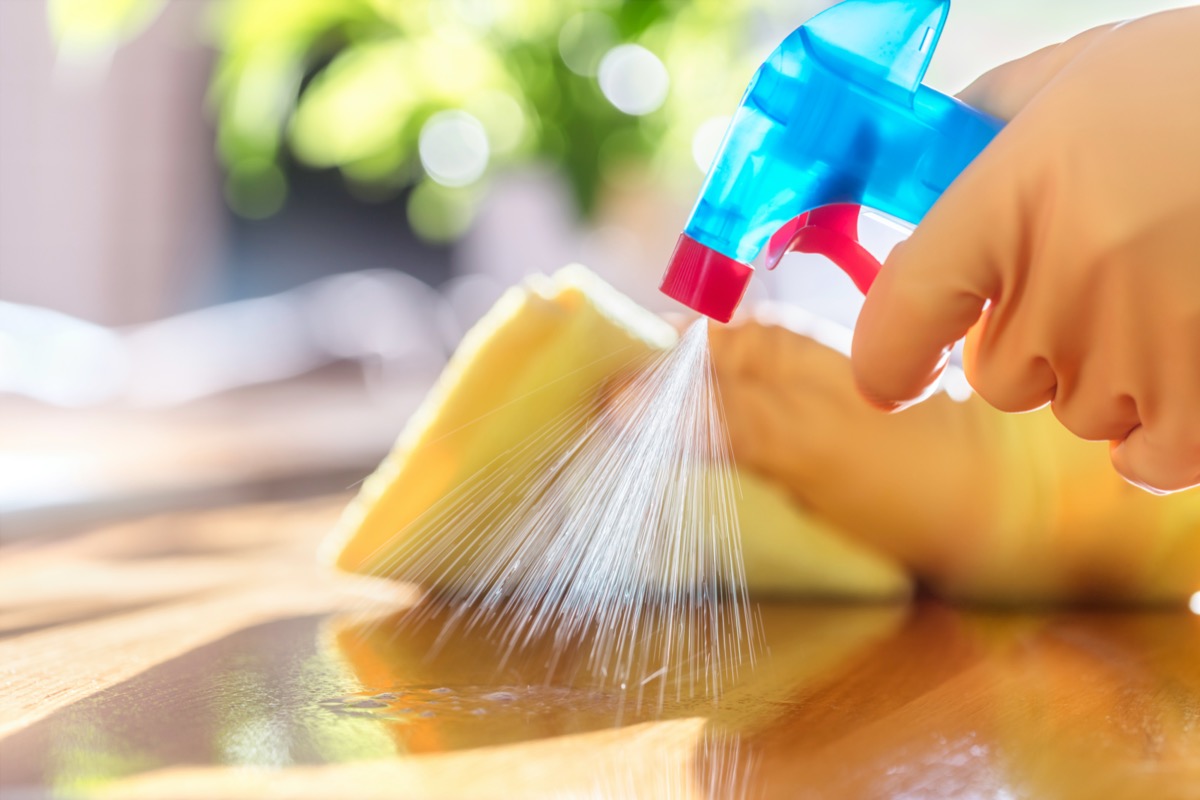
This is one of the most important and perhaps overlooked food safety measures you can take, especially during the pandemic.
When you’re unloading groceries, it’s likely that you’re stacking them on top of kitchen countertops, the same place you cut vegetables or prepare to cook meat. It’s important that you clean and then sanitize the surfaces that were exposed. Shelly Feist, executive director of the non-profit Partnership for Food Safety Education has told Eat This, Not That! before that there’s a difference between wiping down a counter with soap and actually disinfecting it.
“Cleaning and sanitizing are not the same thing. They are separate, important steps you can take to reduce the spread of harmful germs,” explained Feist. “Cleaning removes germs, dirt, and impurities from surfaces by the use of soap or detergent and water. Sanitizing lowers the number of germs on surfaces by the use of a diluted bleach solution that is easy to make at home.”
Sanitize your phone immediately.
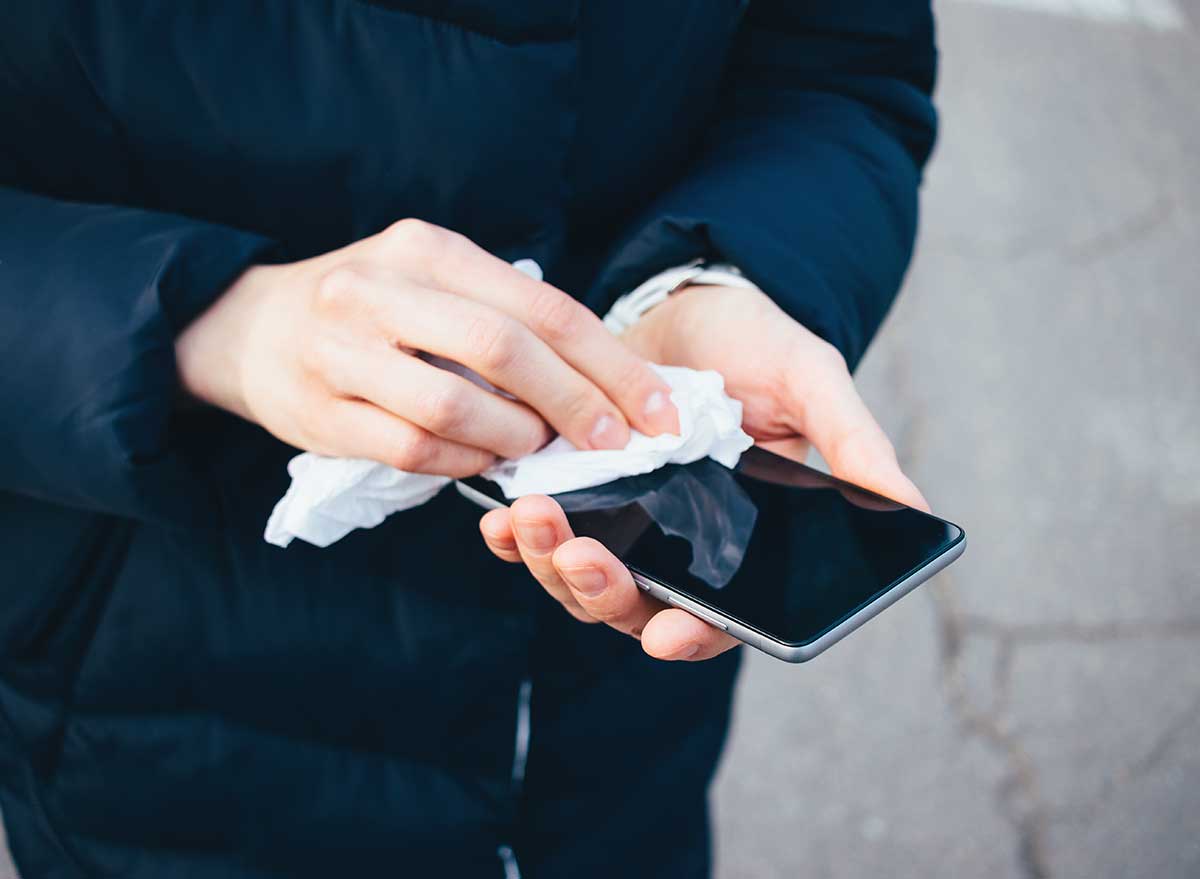
We get it, you’re grocery list is typed out in your Notes section on your phone, which means that you touched your phone frequently throughout that grocery run. One of the best precautions you can take before and after grocery shopping is sanitizing your phone. Bring a disinfectant wipe or two with you in a Ziploc bag to the store, and then wipe it down once more once you return home.
Wearing a cloth mask? Wash it immediately.
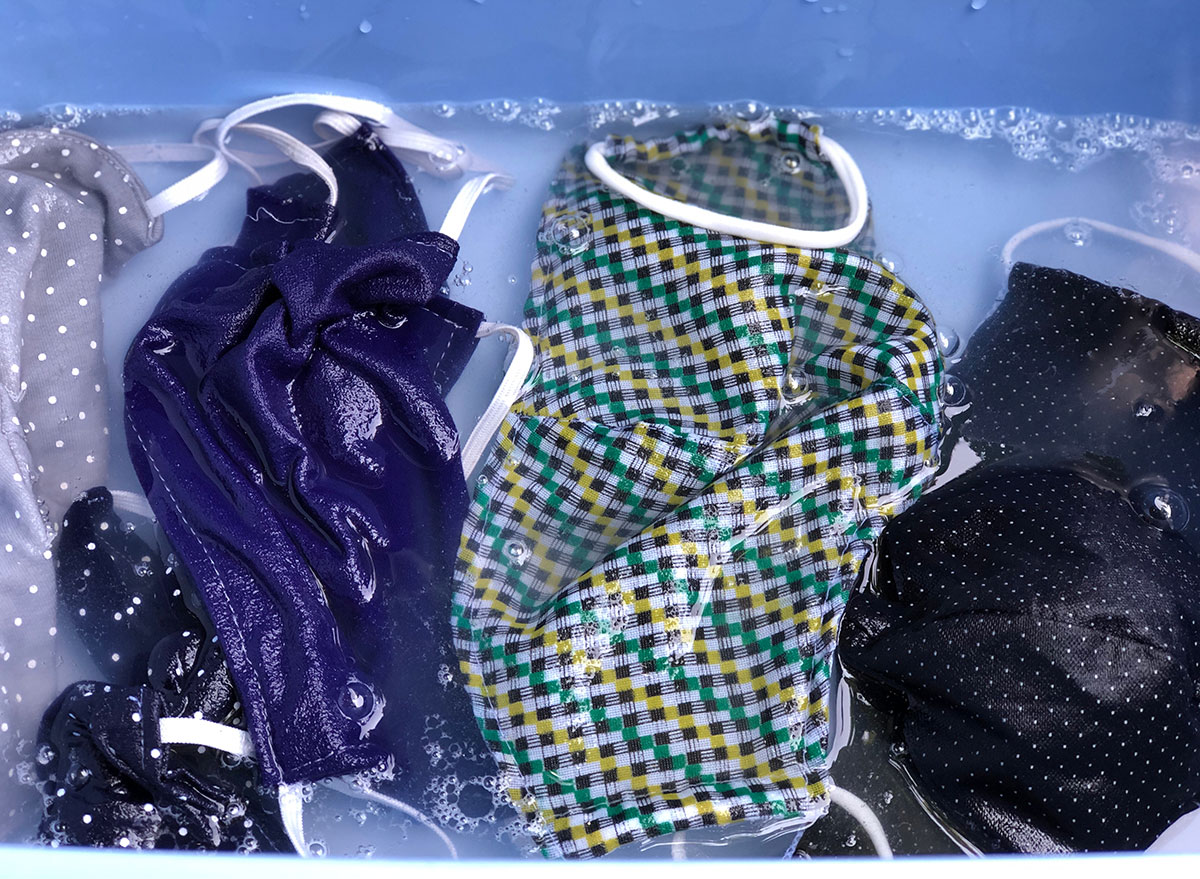
A lot of people are making cloth masks to wear every time they go outside. While a cloth mask is not proven to protect you, it does help you to contain respiratory droplets you produce by coughing, sneezing, or even just exhaling from spreading to other people.
READ MORE: The Worst Foods to Buy at Walmart
In the event you have the virus and are asymptomatic, wearing a cloth mask could prevent someone else you may pass by or encounter from contracting the disease. That being said, washing these masks after each use is essential. Consider hand-washing in hot water and soap.